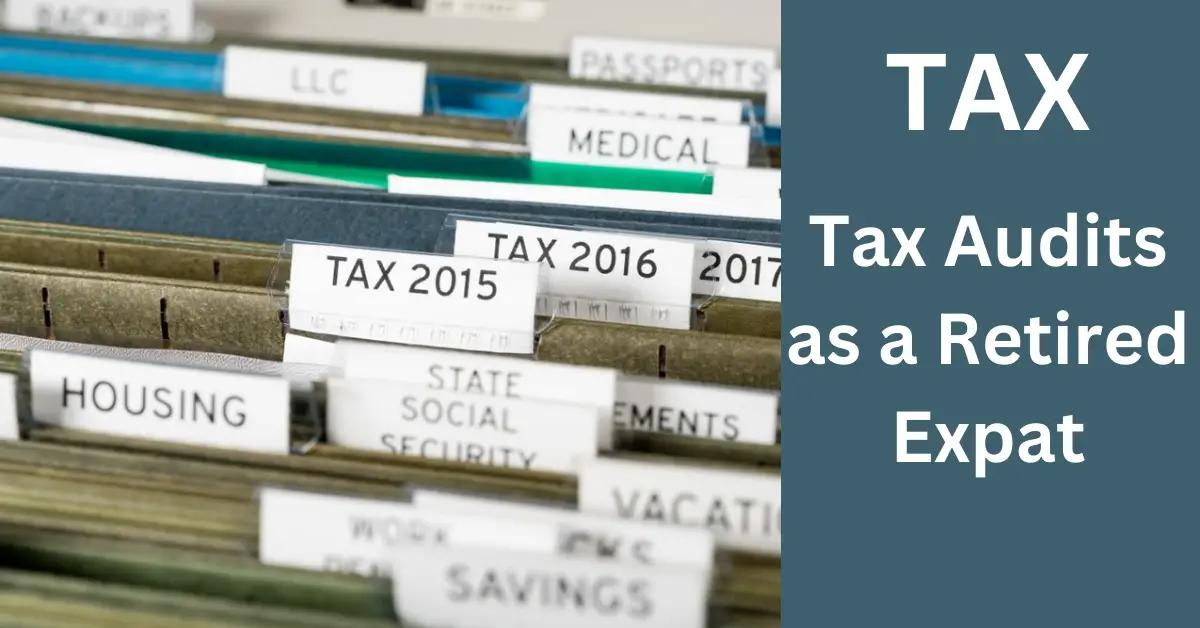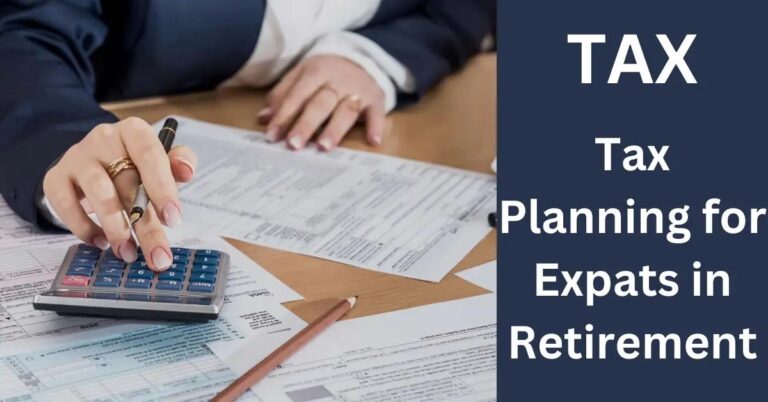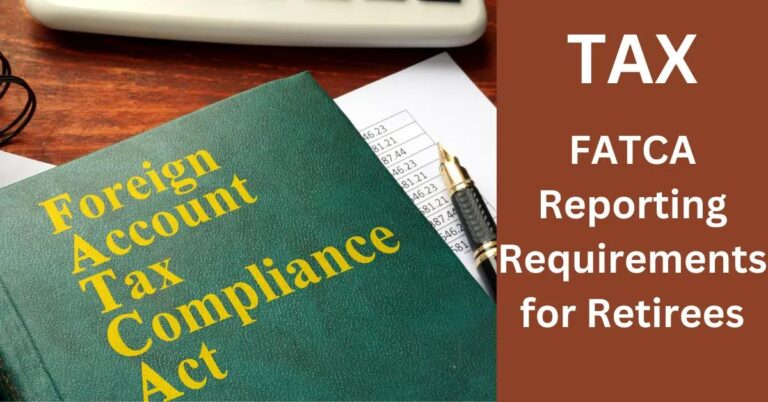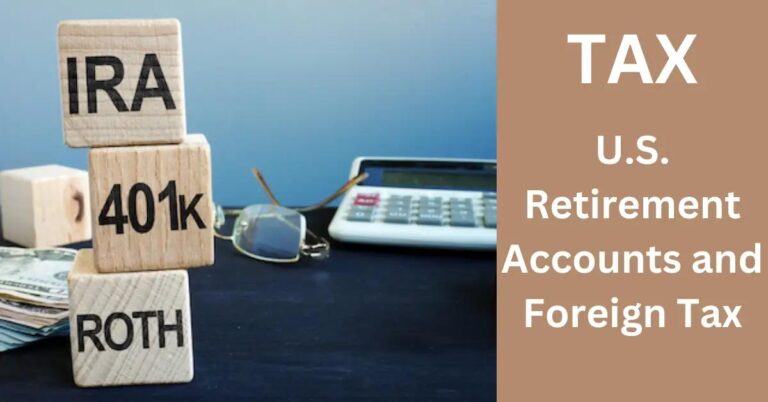TL;DR:
- Retired expats may owe taxes in both their home and host countries, often on pensions.
- Tax treaties can help reduce or eliminate double taxation for expats.
- To stay compliant, expats must report all retirement income and foreign bank accounts.
- Knowledge of both local and international tax laws is crucial; hire expat-savvy tax advisors.
- Maintaining organized financial records and understanding audit procedures helps navigate potential audits.
- Tax residency rules determine where taxes are owed; compliance avoids penalties.
- Timely reporting of Social Security income and foreign bank accounts is essential.
- Utilize online tax platforms to avoid errors and submit returns smoothly.
- Regularly review and organize financial records using digital tools to prevent audit risks.
Facing a tax audit as a retired expat can be intimidating. But with some preparation, you can handle it like a pro. So, what should you know about your tax duties as a retiree abroad? We'll dive into the nitty-gritty of global tax laws, how tax treaties can cut your tax load, and ways to steer clear of the audit spotlight. Let's make sure you sail through any tax hurdles with ease!
What are the Key Tax Obligations for Retired Expats?
Retired expats must meet specific tax duties. Do retired expats pay taxes? Yes, retired expats usually pay taxes in their home country, their new country, or both. It's crucial to know what your obligations are to avoid any surprises during a potential tax audit.
If you're getting a pension, do you pay tax on it if you live abroad? Often, yes. You could pay taxes on your pension depending on tax treaties and agreements. These international tax laws for retirees help explain how pensions work globally. Many countries have tax treaties that can reduce your tax amount.
To ensure expat tax compliance, you must report all your retirement income and foreign bank accounts. Some countries demand more from retirees living abroad, so staying informed is essential. The tax implications of receiving foreign pensions include knowing where to pay taxes and what rates apply.
Now, let’s look at the international tax laws for retirees. You must understand both local and foreign tax laws. Each country has rules about how foreign income is taxed. Some countries might offer exemptions or special conditions for expat retirees.
A major part of handling your tax duties involves knowing the mandatory reporting requirements for expats. Missing these can lead to penalties. Being diligent in your reporting is the best way to avoid any legal issues or audits.
Always aim to understand the tax audit process to be well-prepared. By knowing tax rules, you lessen the chance of an audit. Regularly check your financial documents and stay updated on any law changes. It’s wise to consult with a tax advisor who understands international tax laws. This ensures you stay compliant and stress-free.
How Can Retired Expats Prepare for a Tax Audit Abroad?
If you're a retired expat, handling a tax audit involves several key steps. First, when you get an audit notice, do not panic. Respond to the notice promptly, and make sure to understand the reasons for the audit.
Steps to Take Upon Receiving an Audit Notice
Start by reviewing the audit notice carefully. This will tell you what's being questioned. Gather all related documents like tax returns, bank statements, and receipts. Organizing these records in order makes the process less stressful.
Compiling and Organizing Necessary Financial Records and Documents
Preparing for a tax audit abroad means having complete and clear financial records. You need accurate income reports, especially if you have multiple sources. Arrange these records by year, and ensure that everything matches your filed tax returns.
Seeking Assistance from Expat-Friendly Tax Advisors
Consider hiring a tax advisor with expat experience. They can help decode complex rules and present your case effectively. Look for advisors who are familiar with handling audit notices abroad. They help in making sense of local tax guidelines, which many might find challenging alone.
Creating an Effective Tax Audit Checklist
Having a checklist for prep makes life easier. Include items like tax returns, retirement income papers, and foreign bank account details. Check off each item as you compile them, ensuring nothing is missed.
Preemptive Strategies to Minimize Audit Risks
Reducing audit risks beforehand saves headaches. File your taxes on time and keep honest records. Understand how laws affect retirement income, as expats may face more scrutiny. Stay informed about new tax rules through reliable resources.
Remember, being retired overseas means following the tax laws of your home and host country. Proper preparation helps you navigate audits smoothly and live without worry.
What Role Do Tax Treaties Play in Reducing Tax Liabilities for Retired Expats?
Tax treaties are agreements between countries to help citizens avoid double taxation. They are particularly important for retired expats with income from both their home and host countries. So, do retired expats have to pay US taxes? The answer is often yes, but tax treaties can reduce or eliminate certain taxes. Many treaties permit taxpayers to pay taxes in one country, not both. Understanding these treaties is vital to easing your financial burden.
These treaties may offer tax exemptions or credits. For instance, some treaties exempt social security income from taxation. It's crucial to know which provisions apply to you to maximize benefits. This knowledge helps avoid dual taxation, meaning paying taxes twice on the same income. Dual taxation issues for expats can greatly affect your budget. Using the right treaty provisions can save significant money.
Consulting with international tax experts is wise. They can guide you through the complexities of treaties. Experts help identify if you're eligible for any tax exemptions for retired expats. They also provide clarity on filing procedures, which can be quite intricate.
When it comes to audits, retirees have legal rights tied to treaty benefits. If audited, understanding these rights is crucial. Tax treaties usually outline what documentation is needed for these situations. The IRS can audit retirees, but knowing your rights can help defend your tax position.
In sum, tax treaties reduce financial burdens for retired expats by offering exemptions and credits. They help prevent paying taxes twice and ensure you take full advantage of available benefits. For detailed treaty guidelines and to see if they apply to you, consult your country’s tax treaty.
How Can Understanding Tax Residency Rules Benefit Retired Expats?
If you don't pay taxes as an expat, you can face penalties. Understanding tax residency rules helps avoid these issues by clarifying your tax dues in each country. Every country has its tax residency requirements. Identify these requirements to know where you owe taxes. This knowledge is crucial for a retired expat.
Residence status directly impacts your taxation on global income. If you're considered a resident, you might pay taxes on worldwide income, not just local earnings. Some countries only tax residents on local income. Your residence status can make a big difference in what you pay.
Lifestyle choices can affect your taxable income. For instance, if you live more than half the year in one country, you might become a tax resident there. This means you need to pay taxes on worldwide income in that country. It's vital to understand how your lifestyle impacts taxes.
Ensure compliance with foreign tax residency rules by staying updated on laws. Tax laws change, and staying informed helps avoid mistakes and penalties. Regularly check official tax websites or consult with a tax advisor knowledgeable about expat taxes.
To maintain compliance, gather and organize all needed documents related to your residency and income. Keep proof of your time spent in each country, such as travel records or rental agreements. This data can help prove your residency status if questioned.
Finally, understand the impact that changes in tax residency laws can have. Being proactive about learning new laws will save you from unexpected tax burdens. With proper planning and knowledge, you minimize stress and ensure you meet your tax obligations as a retired expat.
What are the steps involved in filing taxes as a retired expat?
Do retired expats pay taxes on Social Security if they live abroad? Yes, they must report it. When you get Social Security benefits outside the U.S., filing taxes is still necessary. The money you receive could be taxed depending on the country's tax treaty with the U.S.
Next, you must report any foreign bank accounts. The IRS needs to know if you hold accounts abroad with funds exceeding $10,000 at any point during the year. Not reporting these accounts can lead to fines. Being open about your overseas assets ensures your financial health.
Modern technology simplifies submitting expat tax returns. Use online tax platforms tailored for expats. These platforms guide you through the tax forms and help with local regulations. They also reduce errors and save time. Review them for accuracy before submitting to avoid common mistakes.
Local tax codes might confuse you. They differ from country to country and need careful navigation. Understanding them is vital to ensure you comply with local laws. Some countries have special rules for foreign income or extra deductions for retired expats.
Avoid common pitfalls by staying informed. Missing a filing due date can cost you. Ignoring local taxes can lead to penalties, fines, and even audits later. Check if you’re eligible for any credits or exemptions; they help lower your taxes.
Each step demands understanding and accuracy. If unsure, seek help from professionals familiar with expat taxes. They offer advice specific to your situation, improving compliance and reducing stress.
How can retired expats effectively manage financial records for audit purposes?
You might wonder, "Are expats more likely to be audited?" The truth is, expats might face audits if records are incomplete. So, how do you stay prepared?
First, keep detailed financial records. This means tracking all income, including pensions, investments, and any other income sources. Make sure you have proof for every transaction. Keep bank statements, wage slips, and contracts in a safe place. Store them both in paper form and digitally. This helps if questions arise during an audit.
When you receive foreign income, document it carefully. Note each source, the amount, and the dates received. Confusion can lead to errors, so clarity is key. Use digital tools, like spreadsheets or software, to sort your records. They help you organize and spot any mistakes quickly.
Using digital tools also makes finding records easier. Tools like TurboTax or QuickBooks organize documents and reports neatly. They can also calculate totals, ensuring you don't miss anything important. This saves time and stress when audits occur.
Transparency reduces risks of formal inquiries. Open your records regularly. Make a habit of reviewing everything monthly. This keeps your financial story accurate and clear. If a problem appears, handle it immediately to avoid snowballing later.
Help is available if you need it. Many experts specialize in expat taxes. Seek them out for guidance on tricky parts. They clarify rules and prevent minor errors from becoming issues. These professionals use proven strategies, simplifying complex processes for smoother tax years.
Remember, staying organized limits audit stress and provides peace of mind in your retirement abroad.
Conclusion
Retired expats face unique tax challenges that need careful attention. From understanding foreign pensions' tax implications to mastering international tax laws, knowledge is key. Stay informed to avoid audits and harness the benefits of tax treaties. Knowing your tax residency and filing rules ensures compliance. Keep your records well-organized with the help of expert advice. This proactive approach helps you manage your financial responsibilities and enjoy your retirement abroad without tax worries.












